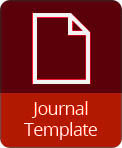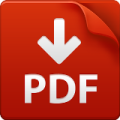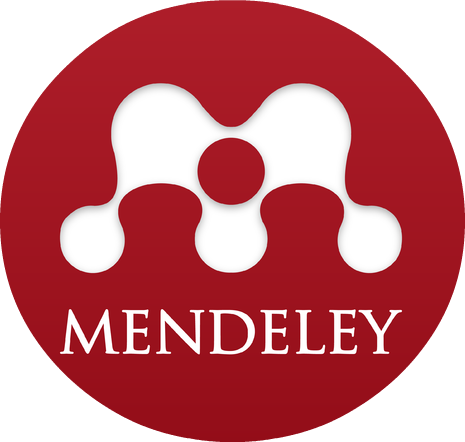- Focus and Scope
- Section Policies
- Peer Review Process
- Open Access Policy
- Publication Ethic and Statement
- Screening for Plagiarism
- Publication Fee
Focus and Scope
The Kulidawa Journal focuses on receiving articles from research in the field of Mathematics and Natural Sciences (biology, physics, science, chemistry, and mathematics). Research can be in the form of qualitative research (case studies, classroom action research) or quantitative research (quasy experiments).
The elaboration of the scope of the kulidawa journal is as follows:
- Learning: consists of theoretical and empirical research studies about the learning of Mathematics and Natural Sciences. We invite manuscripts that investigate learning and its change and growth from various lenses, including psychological, social, cognitive, sociohistorical, affective, and MIPA practices;
- Issues and trends: consists primarily of analytical, interpretive, or persuasive essays on current educational, social, or philosophical issues and trends that are relevant to the teaching of Mathematics and Natural Sciences. This particular section mainly seeks to promote information dialogue on current issues in Mathematics and Natural Sciences education;
- MIPA Teacher / Lecturer Competency Study: Consists of original and / or theoretical empirical research that examines Teacher / Lecturer preparation, Teacher / Lecturer work, or how Teacher / Lecturer work is influenced by a broader context. "Teacher / Lecturer Education" refers to the development of a person's entire teaching career, from pre-service, to induction, to the advanced professional teaching stage;
- Comments: The manager provides a forum for the expression of various points of view and correction of misconceptions about the topics in published papers. Journal readers are invited to contribute their ideas to this forum. Contributions to the Comments section must be relatively brief, concise, and clear;
- Books: review reviews of newly published books in the field;
- Research that is poorly described and debated is not recommended, and will be reviewed in greater depth by the editorial team of the kulidawa journal.
Section Policies
Articles
Peer Review Process
The Kulidawa Journal applies a Double Blind Process system, in which the second party (author and reviewer) does not know the treatment given to avoid displacement of bias. That is, the author does not know about the review where the article will be given / obtained. Similarly, reviewers do not know whose articles they will check.
Articles published in May and November. May publishing will receive articles from December to April. While for articles published in November, they will receive articles from June to October.
Articles received will be reviewed by the editorial board. Furthermore, it will be sent to the two bestari partners to check the suitability of the contents of the writing. Recommendations from the two bestari partners will be considered for acceptance or rejection of the article, whether this article will be accepted (immediately accepted and processed), revised (with some improvements), or rejected (rejected with various options).
Open Access Policy
This journal provides direct open access to its content with the principle that making research freely available to the public supports greater global knowledge exchange.
Publication Ethic and Statement
Publication Ethic and Statement
Kulidawa is a peer-reviewed journal, published twice a year by Fakultas Tarbiyah dan Ilmu Keguruan (FTIK), IAIN Kendari. It is available online as open access sources as well as in print. This statement clarifies ethical behaviour of all parties involved in the act of publishing an article in this journal, including the author, the editor-in-chief, the Editorial Board, the reviewer, and the publisher. This statement is based on COPE’s Best Practice Guidelines for Journal Editors.
Ethical Guideline for Journal Publication
The publication of an article in Kulidawa is an essential building block in the development of a coherent and respected network of knowledge. It is a direct reflection of the quality of the work of the authors and the institutions that support them. Peer-reviewed articles support and embody the scientific methods. It is therefore important to agree upon standards of expected ethical behavior for all parties involved in the act of publishing: the author, the editor, the reviewer, the publisher, and the society. As the publisher of Kulidawa, FTIK, IAIN Kendari takes its duties of guardianship over all stages of publishing seriously and it recognizes its ethical and other responsibilities. FTIK IAIN Kendari committed to ensuring that advertising, reprint or other commercial revenue has no impact or influence on editorial decisions.
Publication Decisions
The editors of Kulidawa is responsible for deciding which articles submitted to the journal should be published. The validation of the work in question and its importance to researchers and readers must always drive such decisions. The editors may be guided by the policies of the journal's editorial board and constrained by such legal requirements as shall then be in force regarding libel, copyright infringement, and plagiarism. The editors may confer with other editors or reviewers in making their decisions.
Plagiarism Screening
It is basically author’s duty to only submit a manuscript that is free from plagiarism and academically malpractices. The editor, however, double checks each article before its publication. The first step is to check plagiarism against offline database developed by FTIK IAIN Kendari and, secondly, against as much as possible online databases.
Fair Play
An editor at any time evaluates manuscripts for their intellectual content without regard to race, gender, sexual orientation, religious belief, ethnic origin, citizenship, or political philosophy of the authors.
Confidentiality
The editors and any editorial staff must not disclose any information about a submitted manuscript to anyone other than the corresponding author, reviewers, potential reviewers, other editorial advisers, and the publisher, as appropriate.
Disclosure and Conflicts of Interest
Unpublished materials disclosed in a submitted manuscript must not be used in editors' own research without the express written consent of the author.
Duties of Reviewers
Contribution to Editorial Decisions
Peer review assists the editors in making editorial decisions and through the editorial communications with the authors may also assist the author in improving the quality of the paper.
Promptness
Any selected referee who feels unqualified to review the research reported in a manuscript or knows that its prompt review will be impossible should notify the editors and excuse himself from the review process.
Confidentiality
Any manuscripts received for review must be treated as confidential documents. They must not be shown to or discussed with others except as authorized by the editor.
Standards of Objectivity
Reviews should be conducted objectively. Personal criticism of the author is inappropriate. Referees should express their views clearly with supporting arguments.
Acknowledgement of Sources
Reviewers should identify relevant published work that has not been cited by the authors. Any statement that an observation, derivation, or argument had been previously reported should be accompanied by a proper citation. A reviewer should also call to the editors' attention any substantial similarity or overlap between the manuscript under consideration and any other published paper of which they have personal knowledge.
Disclosure and Conflict of Interest
Privileged information or ideas obtained through peer review must be kept confidential and not used for personal advantage. Reviewers should not consider manuscripts in which they have conflicts of interest resulting from competitive, collaborative, or other relationships with any of the authors, companies, or institutions related to the papers.
Review Process
Every manuscript submitted to Kulidawa is independently reviewed by at least two reviewers in the form of "double-blind review". Decision for publication, amendment, or rejection is based upon their reports/recommendation. In certain cases, the editor may submit an article for review to another, third reviewer before making a decision, if necessary.
Duties of Authors
Reporting Standards
Authors of reports of original research should present an accurate account of the work performed as well as an objective discussion of its significance. Underlying data should be represented accurately in the paper. A paper should contain sufficient detail and references to permit others to replicate the work. Fraudulent or knowingly inaccurate statements constitute unethical behaviour and are unacceptable.
Originality and Plagiarism
The authors should ensure that they have written entirely original works, and if the authors have used the work and/or words of others that this has been appropriately cited or quoted.
Multiple, Redundant, or Concurrent Publication
An author should not in general publish manuscripts describing essentially the same research in more than one journal or primary publication. Submitting the same manuscript to more than one journal concurrently constitutes unethical publishing behaviour and is unacceptable.
Acknowledgement of Sources
Proper acknowledgment of the work of others must always be given. Authors should cite publications that have been influential in determining the nature of the reported work.
Authorship of the Paper
Authorship should be limited to those who have made a significant contribution to the conception, design, execution, or interpretation of the reported research. All those who have made significant contributions should be listed as co-authors. Where there are others who have participated in certain substantive aspects of the research project, they should be acknowledged or listed as contributors. The corresponding author should ensure that all appropriate co-authors and no inappropriate co-authors are included on the paper, and that all co-authors have seen and approved the final version of the paper and have agreed to its submission for publication.
Disclosure and Conflicts of Interest
All authors should disclose in their manuscript any financial or other substantive conflict of interest that might be construed to influence the results or interpretation of their manuscript. All sources of financial support for the project should be disclosed.
Fundamental errors in Published Works
When an author discovers a significant error or inaccuracy in his/her own published work, it is the author’s obligation to promptly notify the journal editor or publisher and cooperate with the editor to retract or correct the paper.
Screening for Plagiarism
Authors are advised to do a plagiarism check independently before submitting the article to the COMMENTATE: Journal of Communication Management. The application we recommend for the plagiarism check is through Turnitin. The paper that has been indicated for plagiarism with more than 25% similarity check will be rejected for publication. Plagiarism screening will be conducted by the Editorial Board using Turnitin twice, at the desk review and final editing process
Publication Fee
Costs for paying the author's articles that are ready to be published by the journal team: Rp. 500.000,-


2.png)







